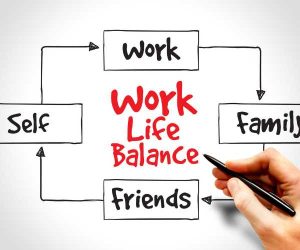Balancing work and life-Best practices for small business owners
Small business owners face a unique set of challenges in their daily lives, including balancing the demands of work with the need to attend to other aspects of life such as family, friends, and personal interests.
The pressure to succeed and keep their businesses afloat can lead to long hours and stress, affecting their well-being and overall satisfaction with life. However, with the right strategies and mindset, it is possible for small business owners to achieve a healthy balance between work and life.
In this article, we’ll explore best practices for small business owners looking to find a healthy balance and maintain a fulfilling personal and professional life.
Related articles;
- 7 Top Financial Moves To Make When Your Savings Reaches $100,000
- Biweekly Money Saving Challenge for 2023
- 7 Practical Ways To Overcoming The Fear Of Failure In Business
What is work-life balance?

Work-life balance refers to the extent to which an individual is able to balance the demands of their work with their personal life, including relationships, hobbies, and other interests. It is about finding a balance between time and energy dedicated to working and time and energy dedicated to personal life so that one does not consume the other and both are given their due importance.
A simple real-life analogy to explain work-life balance is to think of it as a scale, where work is on one side and personal life is on the other. Ideally, both sides should be evenly weighted, allowing individuals to maintain a sense of balance and fulfilment in their lives.
However, if one side becomes too heavy, the scale becomes unbalanced and leads to stress, burnout, and dissatisfaction. As a small business owner, it’s important to continually check the balance of the scale and make adjustments to ensure a healthy work-life balance.
Why is work-life balance important?

Work-life balance is important for several reasons:
1. Mental and physical health
An imbalanced work-life balance can lead to stress, burnout, and other physical and mental health problems. On the other hand, having a good balance can improve well-being and increase satisfaction with life.
2. Improved productivity
When individuals have a healthy work-life balance, they are better able to focus and be productive at work, and are less likely to experience burnout and decreased performance.
3. Better relationships
A balanced work-life balance can help individuals maintain strong relationships with family, friends, and loved ones. Spending quality time with loved ones can also serve as a stress reliever and provide support during difficult times.
4. Increased job satisfaction
Individuals who are able to balance the demands of work with their personal lives are more likely to experience job satisfaction and a positive work environment.
5. Reduced absenteeism
A good work-life balance can help reduce absenteeism, as employees are less likely to miss work due to stress, burnout, and other related health issues.
See Where to get help for work and life balance
5 Best Habits for better work-life balance

Balancing work and life can be a challenging task, but with the right habits, it’s possible to achieve a healthy balance and lead a fulfilling life. Here are some habits to adopt for a better work-life balance:
1. Prioritize self-care
Make time for activities that nourish your mind, body, and soul, such as exercise, meditation, or hobbies. Taking care of yourself will not only improve your health, but it will also help you be more productive and focused at work.
2. Set boundaries
Establish clear boundaries between work and personal life, such as not checking work emails outside of work hours or dedicating certain days to personal pursuits.
3. Plan and organize
Use a planner or calendar to prioritize tasks and manage your time effectively. This will help you focus on what is most important and avoid overloading yourself with too many tasks.
4. Learn to say “no”
It’s okay to turn down invitations or requests if they do not align with your priorities. Saying “no” can help you focus on what is important and reduce stress and burnout.
5. Connect with loved ones
Spending quality time with family and friends can provide support, reduce stress, and bring happiness into your life.
5 Major areas you must balance in your life

Balancing different areas of life can be a challenge, but it’s important for overall well-being and happiness. Here are some of the major areas that individuals should aim to balance in their lives:
1. Work
This includes both paid work and any other activities related to career development and growth. It’s important to find a balance between work demands and personal life to avoid burnout and ensure job satisfaction.
2. Personal relationships
This includes relationships with family, friends, and romantic partners. Spending quality time with loved ones can provide support, reduce stress, and bring happiness into your life.
3. Health and wellness
This includes physical and mental health and taking care of one’s overall well-being. This can include activities such as exercise, healthy eating, and getting enough rest.
4. Personal interests and hobbies
Pursuing personal interests and hobbies can bring fulfilment and a sense of accomplishment. It’s important to set aside time for activities that bring joy and balance to your life.
5. Financial well-being
This includes managing finances, reducing debt, and saving for the future. Maintaining financial stability can reduce stress and provide peace of mind.
7 Things to consider when trying to attain a balanced work life

Attaining a balanced work-life can be a challenge, but with the right approach, it’s possible to achieve. Here are some things to consider when trying to attain a balanced work-life:
1. Priorities
Determine what is most important to you, both in your personal and professional life and prioritize these activities. This will help you focus on what is most important and avoid overloading yourself with too many tasks.
2. Time management
Effective time management is key to balancing work and life. Use a planner or calendar to prioritize tasks, set deadlines, and manage your time effectively.
3. Work-life boundaries
Establish clear boundaries between work and personal life, such as not checking work emails outside of work hours or dedicating certain days to personal pursuits.
4. Self-care
Make time for activities that nourish your mind, body, and soul, such as exercise, meditation, or hobbies. Taking care of yourself will not only improve your health, but it will also help you be more productive and focused at work.
5. Support
Surround yourself with supportive family and friends, and don’t be afraid to ask for help when you need it. Having a strong support system can help reduce stress and provide a sense of balance in your life.
6. Flexibility
Be flexible and open to change. Life is constantly changing, and it’s important to be adaptable and make adjustments as needed to ensure a balanced work-life.
7. Communication
Open communication with coworkers, bosses, and family members can help ensure that everyone’s needs and expectations are met, and can prevent conflicts from arising.
Conclusion
Balancing work and life is a critical aspect of overall well-being and happiness. By prioritizing what is most important, managing time effectively, establishing clear boundaries, taking care of oneself, seeking support, being flexible, and communicating openly, individuals can find a healthy balance between work and life. This can lead to a more fulfilling and productive life, reduced stress, and a greater sense of overall well-being. Remember, it’s not about achieving perfection, but finding a balance that works for you and allows you to lead a fulfilling and enjoyable life. Small business owners, in particular, can benefit greatly from adopting these practices and making work-life balance a priority in their lives.
Leave a Reply